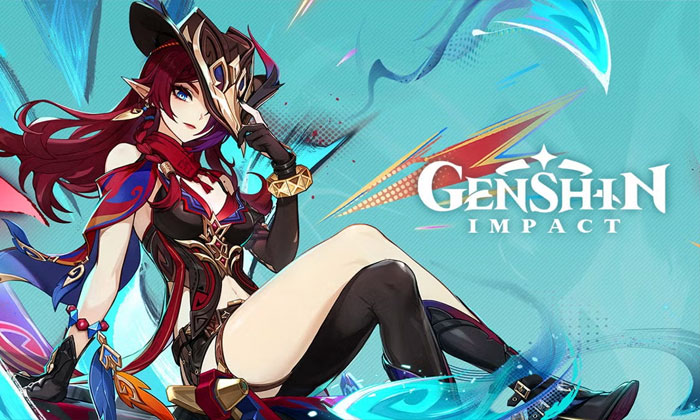
When it comes to your business website, choosing the right web designer is a crucial decision. Your website is often the first interaction customers have with your brand, so it needs to make a great impression. According to https://mightymegaphone.com, a professional web designer can help you create a site that not only looks amazing but also serves your business goals. But with so many designers out there, how do you pick the one that fits your needs?
Web Designers for Business Websites
Here’s a guide on how to choose the perfect web designer for your business.
1. Know Your Website’s Goals
Before you even begin looking for a web designer, you need to define the purpose of your website. Is it an e-commerce site? A portfolio? A blog? Or just a landing page for your business info? Understanding your website’s goals will help you find a designer with the right expertise to meet those needs. For example, if you’re looking to create an online store, you’ll want a designer with experience in e-commerce platforms like Shopify or WooCommerce. On the other hand, a simple business website might not need as much complexity.
2. Look at Their Portfolio
A designer’s portfolio is their resume in the world of web design. It’s the best way to see their style, skills, and the kind of work they can produce. When reviewing portfolios, pay attention to the following:
- Design Aesthetics: Does their design style align with your brand? Is it modern, clean, and visually appealing?
- Functionality: Is the website user-friendly? Does it have smooth navigation and fast loading times?
- Variety: Does the designer have experience creating different types of websites (e-commerce, blogs, corporate sites, etc.)?
- Responsive Design: Ensure that the designer’s work is mobile-friendly, as many users access websites on smartphones and tablets.
3. Consider Their Experience with Your Industry
Experience in web design is important, but experience with your specific industry can be a game-changer. A designer who has worked with businesses like yours will better understand the unique challenges you face and the expectations your customers have. For instance, a designer who specializes in e-commerce websites will understand how to create an optimized shopping experience, while someone with a background in creative portfolios may have more experience with visually-driven sites.
4. Check Client Reviews and Testimonials
Client reviews and testimonials provide valuable insight into how the designer works with clients and whether they deliver on promises. Look for feedback on communication, adherence to deadlines, and overall satisfaction with the project. If possible, ask the designer for references or contact past clients to get a deeper understanding of their experience working with them.
5. Assess Their Communication and Collaboration Skills
Effective communication is key to a successful web design project. You want a web designer who is responsive, listens to your ideas, and understands your vision. During the initial consultation, pay attention to how they communicate. Are they asking the right questions to understand your needs? Do they explain things in a way that’s easy to understand, especially if you’re not familiar with technical jargon? A designer who is easy to collaborate with will help the project run smoothly and ensure that your website turns out just how you want it.
6. Understand Their Process
Every web designer has their own process when it comes to creating a website. It’s important to understand their workflow, timeline, and deliverables before moving forward. Some key questions to ask:
- How long will the project take? Timelines can vary depending on the complexity of the site.
- What will be delivered at each stage? For example, will you get design mockups first? Will you have the chance to give feedback?
- How do they handle revisions? Will you get multiple rounds of revisions, or is it a one-and-done approach?
A clear, transparent process helps ensure that you stay on track and don’t face unexpected delays or costs.
7. Budget and Pricing
While you should never compromise on quality when choosing a web designer, your budget is also an important consideration. Web design costs can vary widely depending on the designer’s experience, the complexity of the project, and the features you need. Make sure to discuss pricing upfront and get a clear idea of what is included in the cost. For example, does the price include ongoing support, hosting, or maintenance? Be wary of designers who give vague pricing estimates—make sure everything is outlined clearly in the contract to avoid hidden fees later.
8. Evaluate Their Technical Expertise
Technical skills are just as important as design skills when it comes to building a functional website. Ensure that the web designer is proficient in key areas such as:
- HTML/CSS: For building the website’s structure and styling.
- JavaScript: For creating interactive features.
- Responsive Design: To ensure your site works on all devices.
- SEO: Basic SEO knowledge to ensure your site ranks well on search engines.
- Content Management Systems (CMS): Familiarity with platforms like WordPress, Shopify, or custom-built CMS for easy content updates.
It’s also important that the designer can integrate necessary tools and software, such as analytics, email marketing, and e-commerce platforms, depending on your business needs.
9. Ongoing Support and Maintenance
A website isn’t a one-time project—it requires ongoing care. After your website is live, you may need updates, bug fixes, or even a redesign in the future. Ask your web designer if they offer maintenance and support after the website launch. Some designers offer ongoing services like security updates, backups, and performance monitoring, which can save you time and stress down the road.
10. Trust Your Gut
Finally, trust your instincts. You’re going to be working closely with this designer, so it’s essential that you feel comfortable with them. Do you feel like they understand your vision? Are they excited about your project? A good working relationship with your web designer will make the whole process more enjoyable and result in a website that truly reflects your business.
Conclusion
Choosing the right web designer for your business website is an important decision that requires careful consideration. By defining your website’s goals, evaluating the designer’s portfolio, checking reviews, and understanding their process, you’ll be well on your way to finding a designer who can help bring your vision to life. Remember, your website is an investment in your business’s future, so make sure you choose a designer who is the right fit for your needs and goals.






